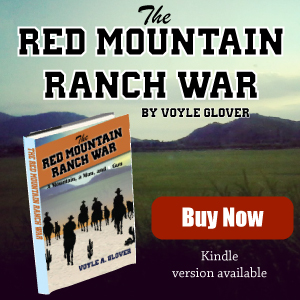Posts Tagged ‘western fiction books’
America’s Love Affair with Western Fiction Began with James Fenimore Cooper
 Western Fiction Impacted America as early as 1813
Western Fiction Impacted America as early as 1813
Westerns have been with us (Americans) since at least 1813 with the release of Daniel Bryan’s The Mountain Muse, and in James Paulding’s The Backwoodsman in 1818. But, the man who would impact American culture more than any man for generations was James Fenimore Cooper, who began life in the new America in 1789 in New Jersey. Back then, one didn’t have to wander very far to be in the “wilderness.”
While his early days were in New Jersey, after the end of the Revolutionary War, Cooper’s father bought land in Central New York. Cooper was just ten years of age. The family house his father built was in the wilderness on the shore of Otsego Lake, an area in central New York that was surrounded by the Iroquois of the Six Nations. It would later become Cooperstown, New York. His father would become a United States Senator.
These years of close proximity to the wilderness, the “leather-stocking,” bearded hunters, and the wild, savage Indians that roamed the region colored Cooper’s mind. He would pass those images along to the world with his many tales, the most famous of which would be The Last of the Mohicans, written in 1826 as part of the well-received Leatherstocking Tales, a series of 4 books spaced years apart. Life was an adventure and Cooper was as wild and adventurous as the land in which he was born. Cooper’s father was very well off, enough to send him to Yale. Alas, after 3 years, Cooper was expelled when he blew up the door to a fellow student’s room. Apparently, Cooper was a bit of a rebel in his teen years.
Cooper decided that college was not for him so at the tender age of 17, he picked up work in 1806 as a sailor, signing aboard a merchant ship. He managed, by 1811, to obtain the rank of midshipman in the fledgling United States Navy. Cooper obtained an Officer’s Warrant signed by none other than Thomas Jefferson.
His years in the wilderness and later, the navy, would greatly influence his writings. He was perhaps the world’s first true “western fiction” writer. True, there were others, such as Paulding, but none of the others had the richness, the reality and the sense of “being there” that Cooper conveyed. Cooper wrote a lot of history (such as The History of the United States Navy, which today is considered the authoritative work for that history). He even did some political writings.
But, nothing has endured like his book, The Last of the Mohicans. It endured because it captured the very best elements essential to a good novel. It had adventure, passions of fear, love and hate, and best of all, it had a memorable, bigger-than-life hero. Some things just don’t change and if you’re honest, you’ll agree that you enjoy those stories that have good prevailing over evil, and if the hero is of heroic proportions, even if flawed, that makes the story memorable.
This was one of the reasons why the Louis L’Amour westerns were so popular. It wasn’t that he gave beautiful descriptions of the land in which he placed his characters. It wasn’t that there was good and evil. The reason his novels were so popular was because L’Amour brought to life a protagonist who was as strong as the land in which he found himself. Readers always loved his strong, virile heroes who were willing to meet the challenges of the Old West head on.